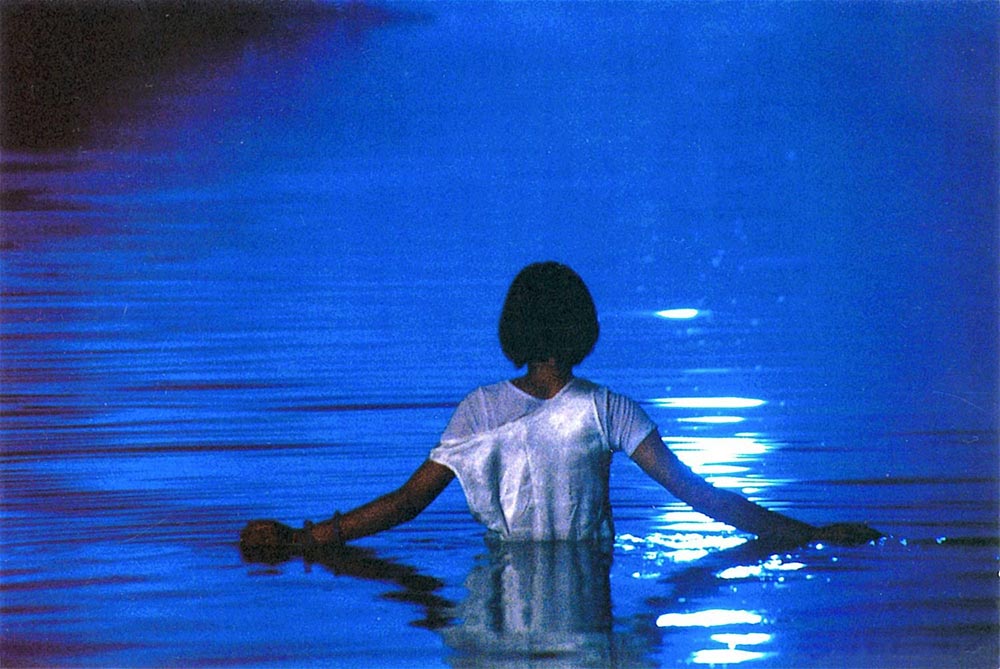Strange things have been happening in the city of Fukuoka, Japan. A seemingly indefinite drought has caused severe water shortages; stories proliferate about citizens who are contracting a bizarre illness that petrifies their insides and turns their organs into stone; and, two meteorites crash into the neighboring forest. Amidst all of this confusion, a new girl comes to town: Izumi (Rena Komine), a high dive champion who transfers to a new school in Fukuoka and quickly captures the attention of two friends, Mao (Shinsuke Aoki) and Ukiya (Masaaki Takarai). A budding romance between Izumi and Ukiya is interrupted, however, when Izumi suffers an almost fatal accident while diving. After waking from a coma, Izumi relates to her peers and her surroundings very differently. She communicates with the dolphins at the local aquarium and with the mushrooms up in the mountains. Izumi also claims to be the only one who can protect humankind from the supernatural beings that want to turn Earth to stone. The mystery surrounding her and what’s happening in Fukuoka broadens as the story goes on, but the potential answers are secondary to the film’s ethereal and watery wonder.
Ishii began his career with scrappy independent genre films that reflected the punk rock culture he was a part of, most notably Crazy Thunder Road (1980) and Burst City (1982). Blending punk music and fashion, stylish action sequences and dystopian themes, Ishii’s early movies possess an anarchic, anti-establishment energy, and became key progenitors of the Japanese cyberpunk subgenre. Along with August in the Water, Ishii branched out significantly in the 1990s with the horror/crime film Angel Dust (1994) and the dark, dreamlike romance Labyrinth of Dreams (1997). Evolving the stylistic techniques of his earlier work instead of abandoning them, Ishii traded in fast-motion for more languid tracking shots, and his signature quick-cut editing became less kinetic and more impressionistic, imbuing his films with a more collage-like fluidity.
August in the Water is perhaps the furthest departure from Ishii’s origins, with its mystical, New Agey aura and meditations on one’s place in the universe. In this otherworldly milieu, however, is the timeless feeling of youthful romantic yearning that is at the film’s core. Hiroyuki’s Onogawa’s minimalist ambient score is a befitting soundtrack to Izumi’s spiritual journey as she finds harmony with the unstable and often scary world around her, instead of pushing back against it.
August in the Water screens this evening, July 15, on 35mm at Japan Society as part of “Japan Cuts 2024.” Filmmaker Gakuryū Ishii will be in attendance for a post-screening Q&A.



